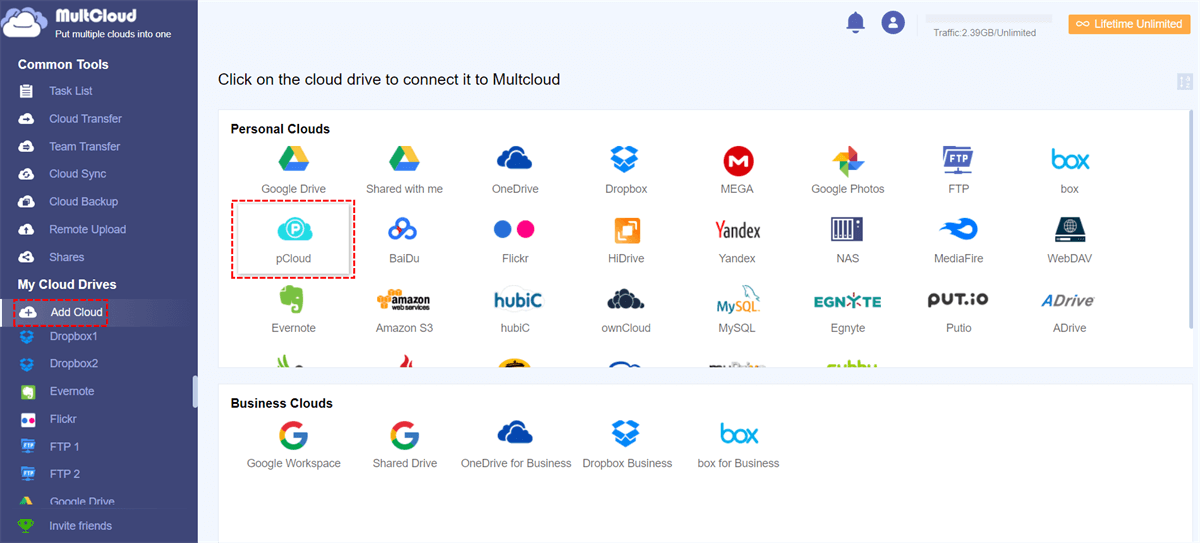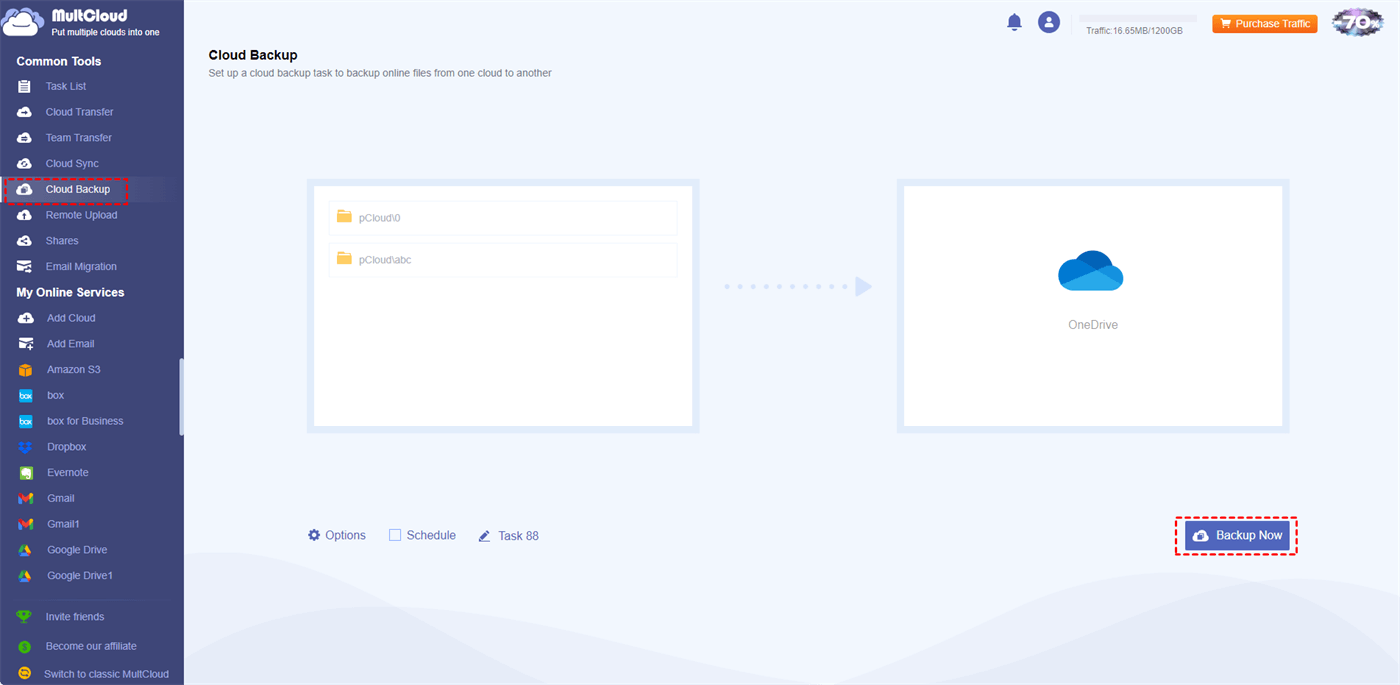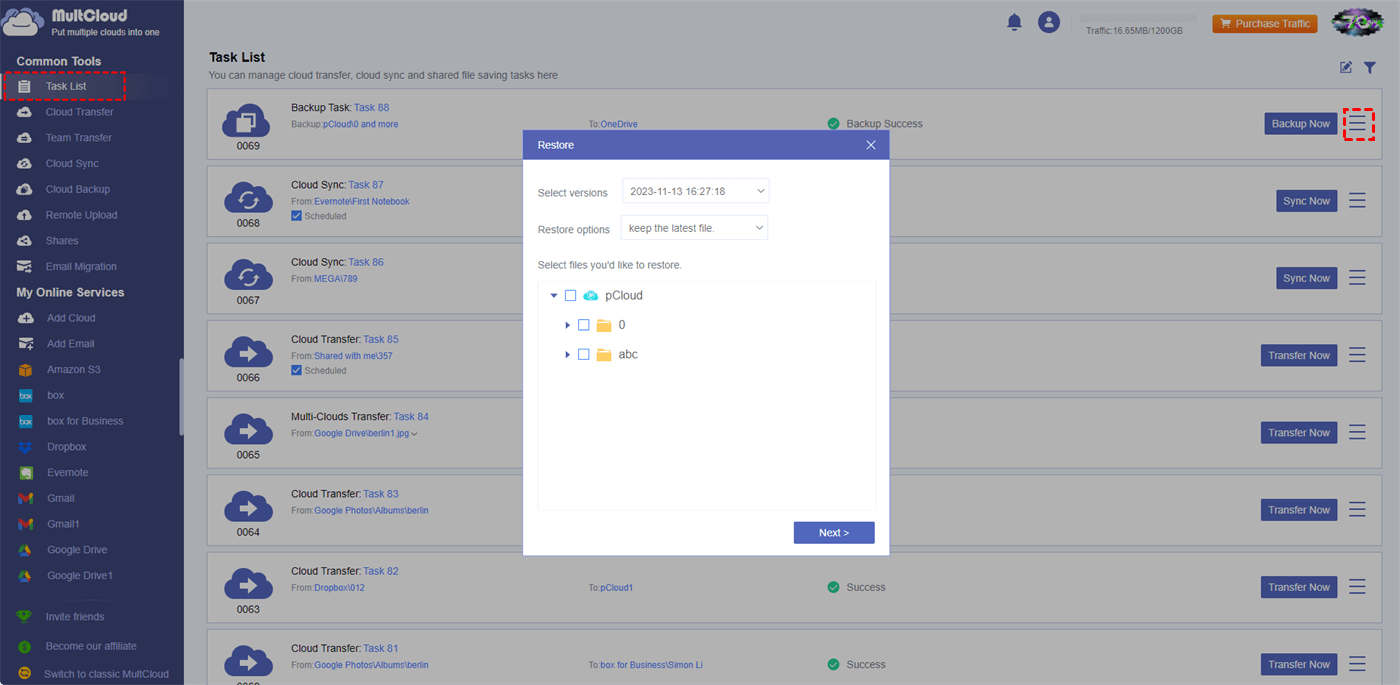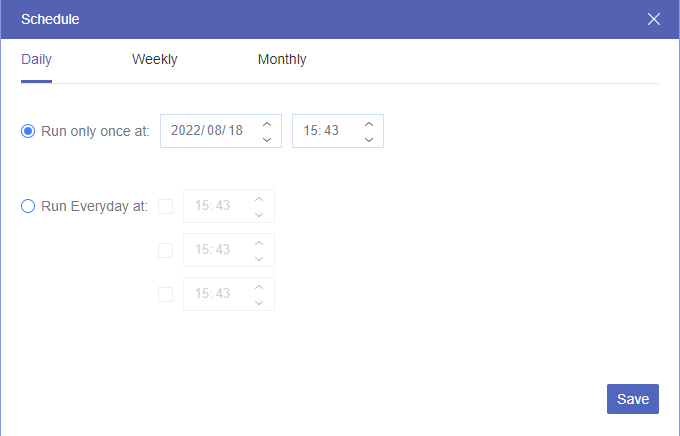Why Make pCloud Recover Deleted Files?
In the event that you accidentally erase files from your account, pCloud's file recovery feature can be quite helpful. This functionality is advantageous for the following reasons:
- Accidental Deletion: Errors happen to everyone, and occasionally files are accidentally erased. Files that have been deleted from your trash or recycling bin can still be restored thanks to pCloud's recovery feature.
- File Version History: Does pCloud have version history? Depending on your subscription level, pCloud retains older file versions for a predetermined amount of time. This implies that you can go back to a previous version of a file in order to recover erased files.
- Protection from Ransomware: pCloud's file recovery feature enables you to return your files to their original, unencrypted condition in the case of ransomware or virus attacks that encrypt or erase data.
- Data Integrity: Being able to restore an earlier version of a file can be essential for preserving the integrity of your data in case you have inadvertently overwritten or changed it.
You have time to restore any files that were unintentionally lost because you can recover deleted files within a specific time frame (usually 15 days for free users).
How to Perform pCloud Recover Deleted Files on Its Web
There are 3 choices for you to try to recover files from pCloud on its website – by Rewind, from shared file or folder, and from Trash. Among them, the Rewind feature is a paid feature, so you may have to subscribe to pCloud’s paid plan to use it.
Way 1. Recover by pCloud Rewind
pCloud Rewind offers a preview of your pCloud account at a specific time in the past. You can then download or restore a specific file, folder, or your whole pCloud account at once with this feature. The Rewind folder in your Home directory contains all of the files you were able to recover using the Rewind feature.
Step 1. Go to the pCloud website and log in to your account.
Step 2. Navigate to the Rewind folder.
Step 3. Choose a time and date prior to the deletion of the files.
Step 4. Review your account's snapshot at that moment.
Step 5. Choose the files or folders you want to recover. Then, click the Rewind button in the upper bar and confirm to rewind in the pop-up window to recover the files or folders.
Note: Since you have become a paid user for Rewind, the deleted files will be saved on pCloud for 30 days instead of 15 days for free users.
Way 2. Recover from Shared Files or Folders
If others once shared files or folders with you but now are not allowed to access them, you can still access the previously opened files with all available versions on pCloud.
Step 1. Open pCloud and log in to your account.
Step 2. Go to the Shared folder > Shared with me and find the files or folders you want to recover there.
Way 3. Recover from Trash
If you delete files within 15 days, you can directly recover them in the Trash folder. pCloud will save your deleted files in the Trash folder for 15 days for free. After this period, they will be permanently removed from pCloud.
Step 1. Go to the pCloud website and log in to your account.
Step 2. Go to the Trash folder and select the deleted files by ticking the boxes next to them.
Step 3. Choose Restore in the upper bar and confirm to restore in the pop-up window. Then, these files will be moved from Trash to their original folders.
How to Perform pCloud Recover Deleted Files from Other Backups
Except for the above ways, you can choose to backup some of your important files to another place for future restoration. The backup destination can be a local hard drive, an external hard drive, another pCloud account, or another cloud drive. If you are willing to do the cloud-to-cloud backup, MultCloud is recommended to you. MultCloud is a professional cloud management service that supports 30+ cloud drives, such as Google Drive, OneDrive, pCloud, iCloud Drive, MEGA, Icedrive, Dropbox, and so on. You can also add unlimited pCloud accounts to it for centralized management for free.
The MultCloud Cloud Backup function can directly backup pCloud files to another account or cloud. Moreover, it has a file versioning feature by which you can recover files with your preferred file versions.
Step 1. Go to the MultCloud website and sign up for a MultCloud account for free.
Step 2. Add pCloud to MultCloud by clicking Add Cloud and the pCloud icon. Then, you will log in to your pCloud account and grant MultCloud access permission in the pop-up window. Also, add another account or cloud with the same operations.
Step 3. Choose Cloud Backup in the left sidebar and select the source and destination cloud in the 2 boxes. Then, click Backup Now to start backing up pCloud files to another cloud.
Step 4. When you want to recover files, go to Task List to find the backup task > click the 3-line button > choose Restore. Then, you can choose to recover which file version and where to save these files.
Note: You can make the backup task regularly by using Schedule. In Schedule, you can select your preferred backup time and when the time arrives, the backup will auto-start.
Conclusion
You now have 4 options to make pCloud recover deleted files. You can choose to recover by the paid Rewind feature, or from the shared files or folders or the Trash folder for free. If you previously backup pCloud files to another place, you can also recover files from the backups.
What’s more, if you plan to backup files from pCloud to another cloud, you can try MultCloud Cloud Backup which can not only backup files but also allow you to restore the files with different versions. With Cloud Backup, you can also create a regular backup task to protect your file security as a routine.
MultCloud Supports Clouds
-
Google Drive
-
Google Workspace
-
OneDrive
-
OneDrive for Business
-
SharePoint
-
Dropbox
-
Dropbox Business
-
MEGA
-
Google Photos
-
iCloud Photos
-
FTP
-
box
-
box for Business
-
pCloud
-
Baidu
-
Flickr
-
HiDrive
-
Yandex
-
NAS
-
WebDAV
-
MediaFire
-
iCloud Drive
-
WEB.DE
-
Evernote
-
Amazon S3
-
Wasabi
-
ownCloud
-
MySQL
-
Egnyte
-
Putio
-
ADrive
-
SugarSync
-
Backblaze
-
CloudMe
-
MyDrive
-
Cubby

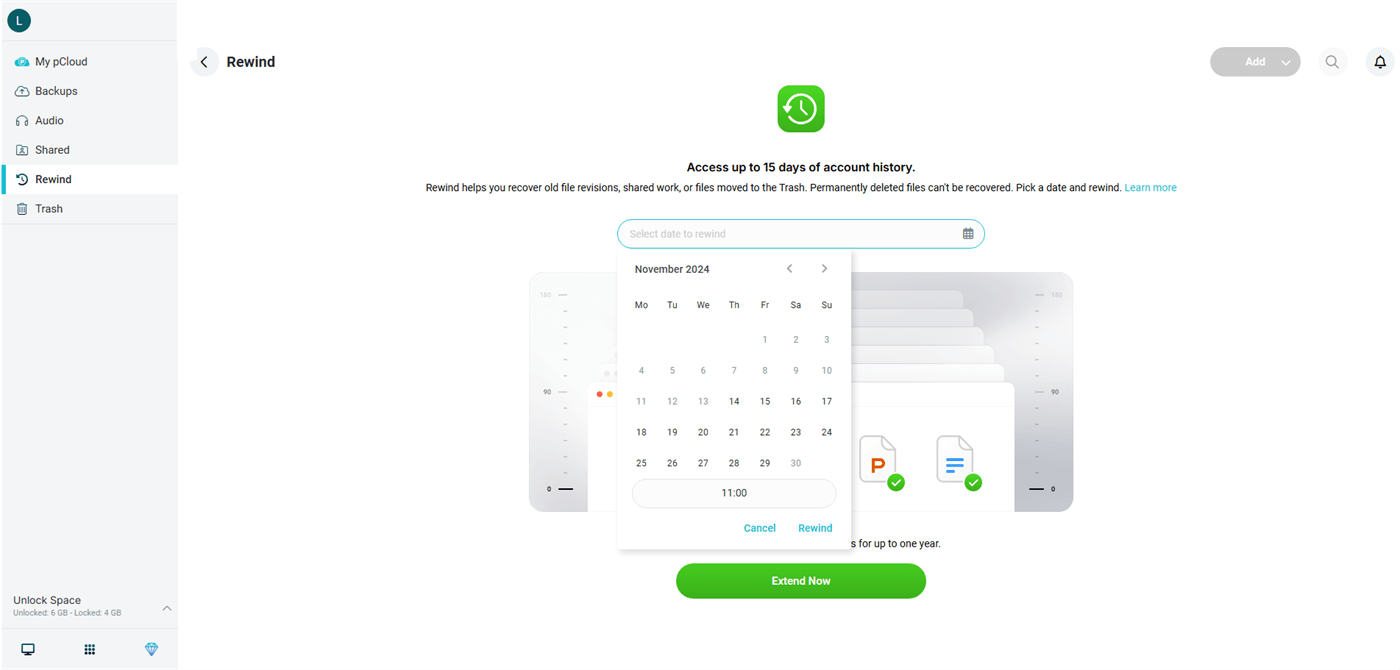
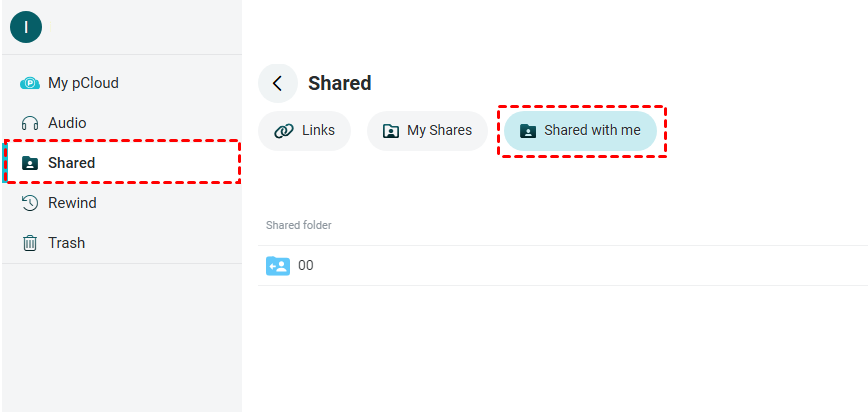
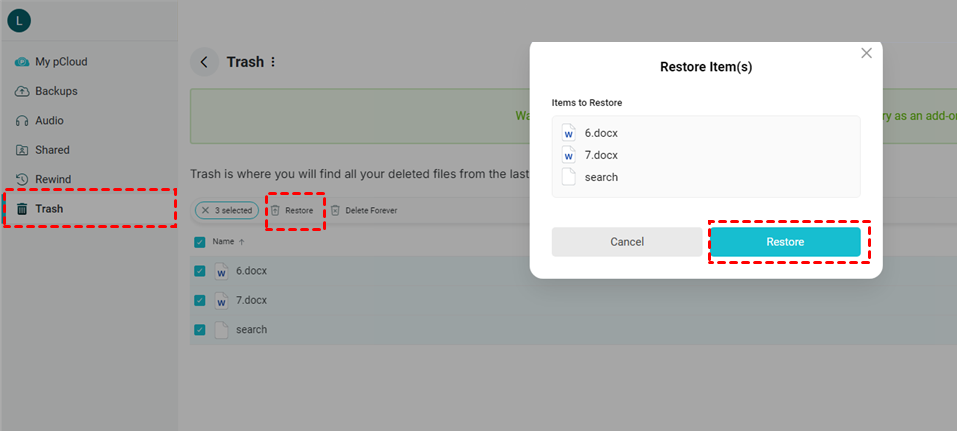
.png)
